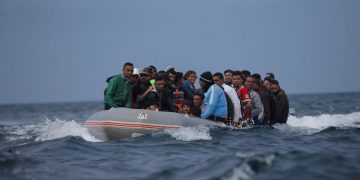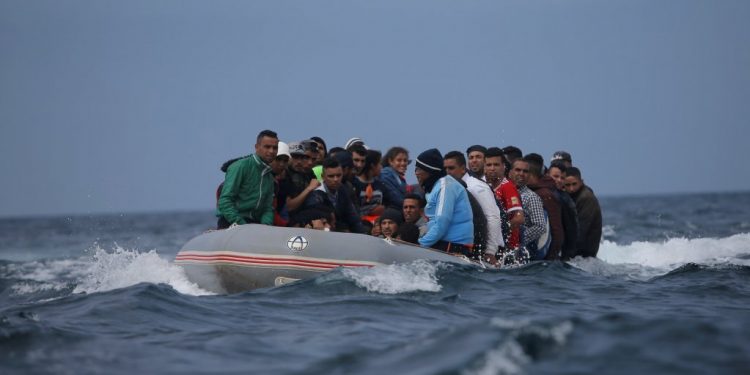By Ebi Kesiena
Senegal’s Navy has intercepted 201 West African migrants attempting the perilous journey across the Atlantic Ocean to Europe, highlighting the ongoing danger and desperation fuelling irregular migration through one of the world’s deadliest routes.
According to a statement released by the Senegalese Army, the interception took place on Thursday evening in the Saloum Delta, a growing departure point for migrants along the country’s western coastline. The operation, carried out by marines stationed in Foundiougne, Fatick region, saw 132 migrants halted aboard a wooden boat, while another 69 were stopped on land before boarding.
The intercepted individuals included women and children, a growing demographic in the migrant flow that was previously dominated by young men. The migrants were of various West African nationalities, authorities said.
The Atlantic route from West Africa to Spain’s Canary Islands has surged in popularity since 2020, becoming both a preferred and perilous passage for thousands seeking better economic opportunities or fleeing conflict. Although overall migration to Europe has declined in recent years, this particular path remains treacherous, with strong currents, overcrowded boats, and the vast distance often leading to tragic outcomes.
Spanish authorities reported that nearly 47,000 migrants arrived in the Canary Islands in 2024, an increase from the 40,000 recorded the previous year. However, countless others never make it. Rights group Walking Borders estimates that thousands have perished along the route in 2024 alone, though exact numbers are difficult to confirm due to the lack of data on unmonitored departures and missing vessels.
Rescue workers in the Canary Islands report an alarming rise in the number of women and children taking the journey, driven by the same desperation that propels many men. The winter months typically see a spike in attempted crossings due to calmer seas, though many still risk the voyage year-round despite the hazards.
Last year, the European Union signed a €210 million agreement with Mauritania aimed at curbing illegal departures from the West African coast. The deal, intended to disrupt smuggling networks and reduce migrant flows to Spain, has so far yielded limited results, with record numbers of arrivals continuing into 2025.
The Atlantic migration route, while once primarily used by migrants from Senegal, Gambia, and other West African nations, is now drawing people from far beyond the continent. Recent years have seen a rise in migrants from Pakistan, Bangladesh, Syria, Yemen, and Afghanistan joining the treacherous voyage in hopes of reaching European shores.
Tragically, many vessels that disappear in the vast Atlantic are never found. In some cases, boats drift for months, only to be discovered far away in the Caribbean or Latin America, often with only remains aboard.



































